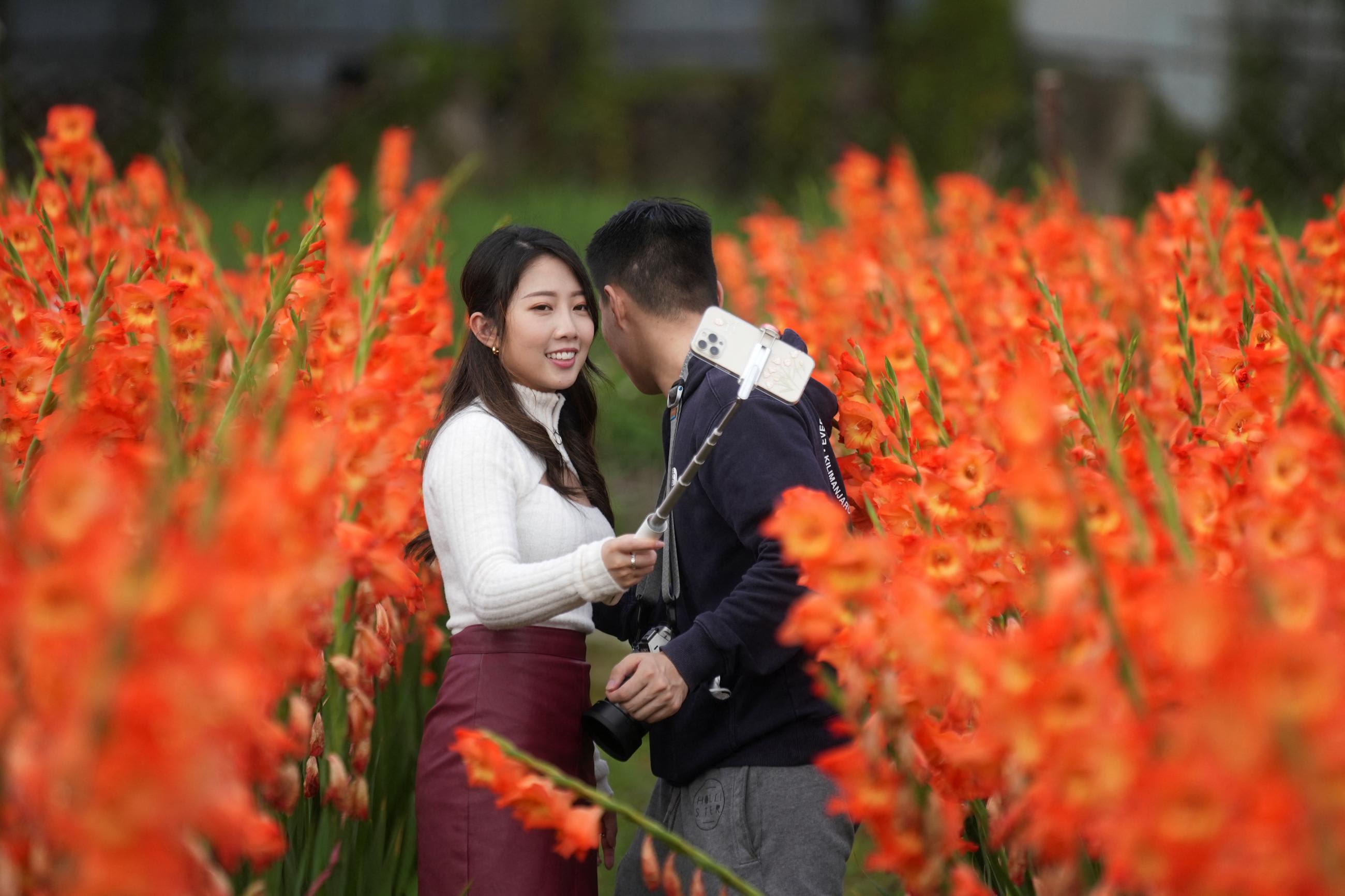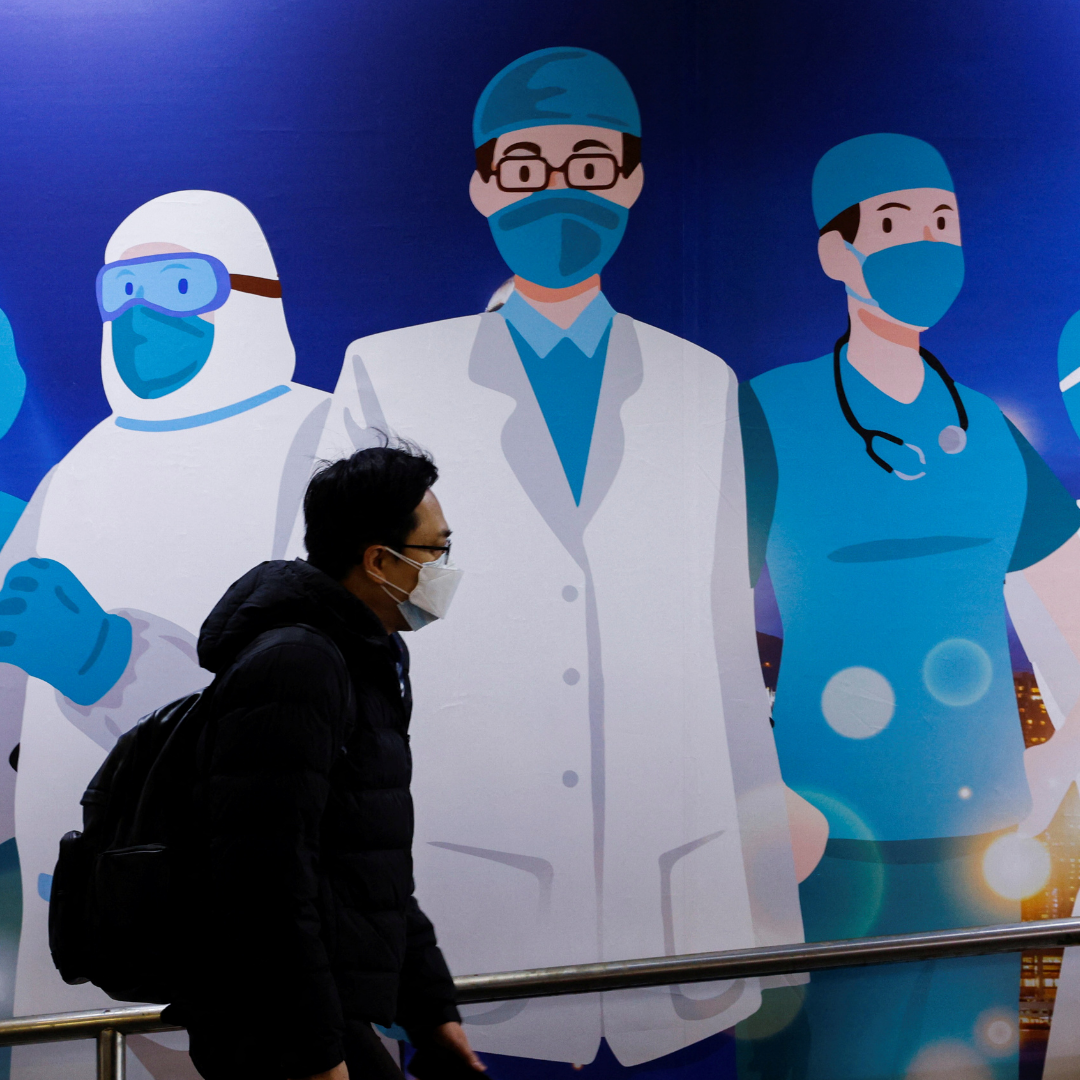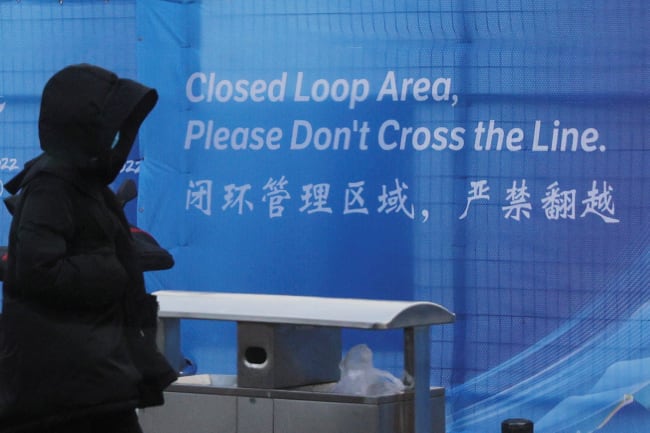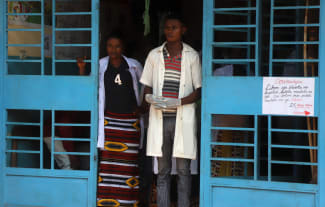Hong Kong has been envied for its ability to keep COVID under control through its strict zero-COVID strategy, but a recent omicron wave has flooded hospitals and isolation units with infected people. Average daily cases are well over 1,000.
Epidemiologist Gabriel Leung, dean of the Li Ka Shing Faculty of Medicine at the University of Hong Kong, spoke with Think Global Health on Thursday, February 24, about the current COVID wave, those who are most vulnerable, and efforts to quell infections.
□ □ □ □ □ □ □ □ □ □ □ □ □
Think Global Health: How are things today, right now, in Hong Kong?
Gabriel Leung: The science is this: Hong Kong is in a rather unique position. We've had four waves of COVID since January 2020. What we had in the past, before this current fifth wave, were all ancestral strains, either the original Wuhan strain or the 614G. And essentially—because of the dynamic zero-COVID policy—it skipped over alpha, beta, gamma, and delta.
Hong Kong has sort of jumped from the ancestral strains, which had a basic reproductive number of somewhere around 2.3 to 2.5, and now all of a sudden to omicron BA.2, which is even more transmissible—about 30 to 40 percent more transmissible than BA.1. And the basic reproductive number is probably somewhere around seven or eight, or even nine. We've jumped from the ancestral strain now to the most transmissible variant of concern, which is three [times] plus more transmissible, and also has the most immune escape from vaccines.
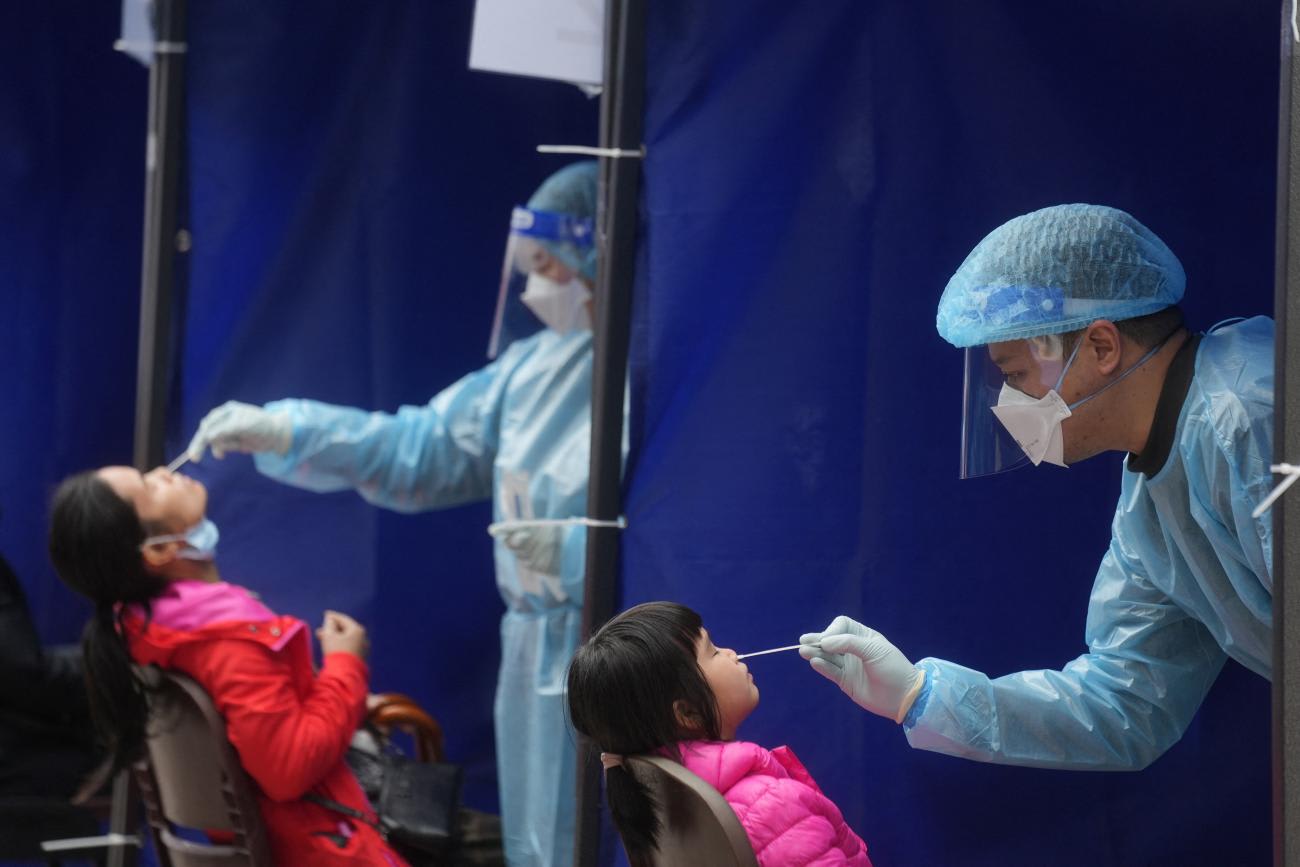
Think Global Health: How are vaccination rates in Hong Kong?
Gabriel Leung: Hong Kong, like many other rich populations, has had privileged access to vaccines. We have had vaccines available from as early as any other rich place and we have never run out. We have not wasted any, but we've never run out. And therefore, with those conditions, it has been rather disappointing that we haven't reached a higher vaccine coverage rate. Currently, it's about 76 percent for two doses. That is respectable. It is by no means low by any stretch of the imagination
On our public vaccine coverage dashboard, put up by the government, if you look at the age distribution of vaccine coverage, you can see the population with a second vaccine dose [starts to drop off] after 60-plus. At 60-plus, it is 60 percent. At 70-plus, it is 46 percent. And at 80-plus, it is 29 percent. If you look at these older folks who are institutionalized as nursing home residents, that number goes down to 20 percent. That's not by design, of course, because like every other place, we have prioritized access for them from day one. They were the first group to have access. There are a variety of reasons why there was so much vaccine hesitancy. And that's really quite unique. We are essentially, particularly for this most vulnerable group, having the most transmissible COVID strain with very, very low coverage in the most infective setting of nursing homes. So we find ourselves disappointingly, in a very vulnerable place.
There are a variety of reasons why there was so much vaccine hesitancy among older people
Think Global Health: So the spike in cases we see in Hong Kong is all older people?
Gabriel Leung: No, the cases aren't all older people, but the deaths are all older people.
Think Global Health: Why are older people not as highly vaccinated?
Gabriel Leung: Almost paradoxically—because we've done so well with zero COVID—there's not that sense of urgency. And that risk-benefit balance when you weigh whether you want to get vaccinated, particularly for families of older folks who are institutionalized who sometimes can't or won't make decisions for themselves, so it's up to the family. They sort of feel like, look, if mom or dad has got all these chronic conditions and is on so many drugs already, and they're kind of frail, and it is back a year ago when vaccines first became available and there were a lot of queries about how safe they were. [They were asking then] how come it took such little time to develop them, and then there were some adverse events that, of course, subsequently were proven not to have been associated with the vaccines.
There were a lot of these [beliefs about vaccines] that really got blown out of proportion in the media. That set the pattern. Those things happened all over the world, but when you've been in a long and low- or zero-COVID environment, you say, hey why bother exposing mom or dad or yourself to that theoretical risk when there is actually no benefit to speak of because you are not protecting from anything. So it's paradoxical.
Think Global Health: Has Hong Kong's political history had an impact on attitudes about COVID and vaccination?
Gabriel Leung: Hong Kong has gone through quite a lot of sociopolitical events since 2014, and the 2019 social unrest actually flowed right into COVID. And so we find ourselves a deeply divided society with not a great deal of trust capital in government. So it's all these factors added together.
Think Global Health: Is the government currently still trying to maintain a zero-COVID policy?
Gabriel Leung: That's the official policy goal, yes.
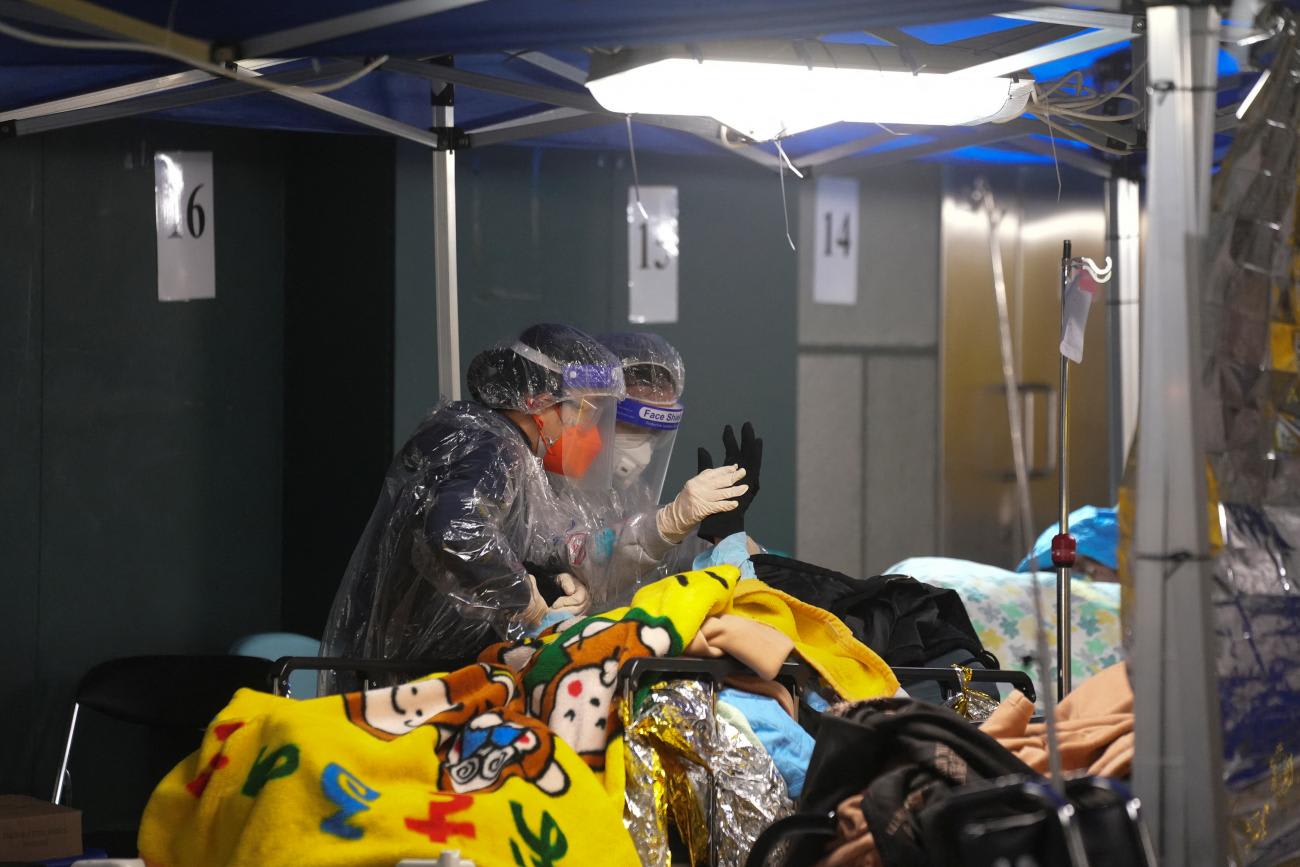
Think Global Health: How realistic do you think a zero-COVID policy is based on the numbers at this point.
Gabriel Leung: Regardless of what your overarching policy goals may be, the place that we find ourselves is such that it has now gone and grown to such an extent that it's no longer easily containable the way that you think of it in mainland China where when you have five or ten cases, you screen the entire population and you lock those parts of the city down, and you basically extinguish and eliminate those very few infective seeds at the very stuttering beginnings. You basically just suppress it so that it never grows. Hong Kong is way past that point. So quite frankly, the only way that this is going to stop is when we start running out of susceptibles. And that's through a combination of social distancing as well as through vaccination, as well as people who have been infected and recovered and therefore have their own immunity to this particular strain.
I think that we are past that point and I don't think it's fruitful to discuss the overarching policy goal now because regardless of what your political beliefs are, or philosophical beliefs are in terms of what should be the right or most appropriate or most realistic policy goal, the actions that you'd be taking now at this point would be identical. And the overriding priority is to make sure that our acute care beds, particularly our ICU beds, that surge capacity does not get exceeded by the need posed by a very sharp peak. We now have to blunt and flatten that peak so that we basically control the number of people who would actually need in-hospital care with serious complications—that they can be properly taken care of.
Let science lead and science will get us out of this
Think Global Health: And that is accomplished by vaccination, lockdown, and masking at this point in Hong Kong?
Gabriel Leung: Vaccination is a little bit too late. If you are unvaccinated, to get at least a couple of doses in you and for it to be effective, it takes six weeks. First dose, then three or four weeks later, second dose, then you wait a couple of weeks before you actually mount an immune response. The lifetime is six weeks and by that time, omicron will be largely over.
If you are completely unvaccinated, getting vaccinated, of course, is a priority, but it's not going to change the epidemic trajectory.
Think Global Health: What is the main vaccine in Hong Kong?
Gabriel Leung: There are two—we have got the inactivated virus platform, Sinovac, and we also have the mRNA platform, BioNTech.
Think Global Health: Are you working with mainland China on the management of COVID?
Gabriel Leung: I work very closely with the national CDC. I work very closely with my academic colleagues all over the country just like I work very closely with colleagues in the United Kingdom, in the United States, and in Canada, and Germany.
Think Global Health: Is there anything else that you would want the public to know?
Gabriel Leung: Let science lead and science will get us out of this.
